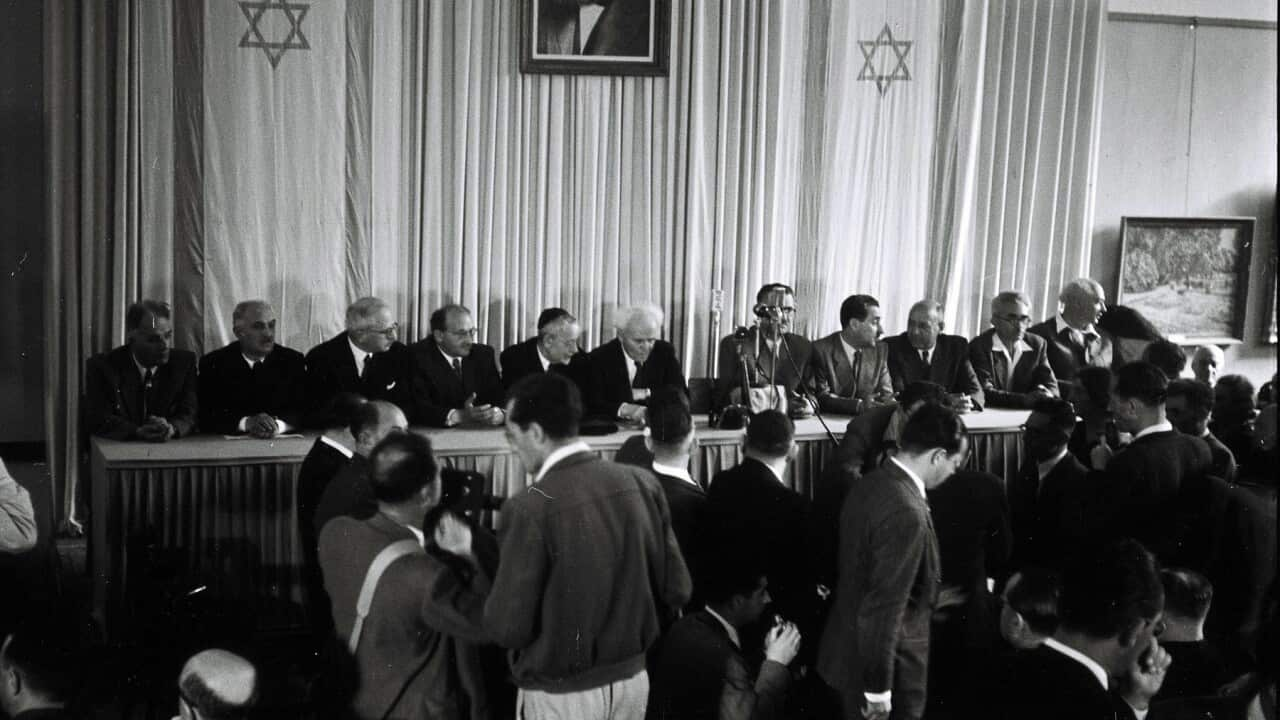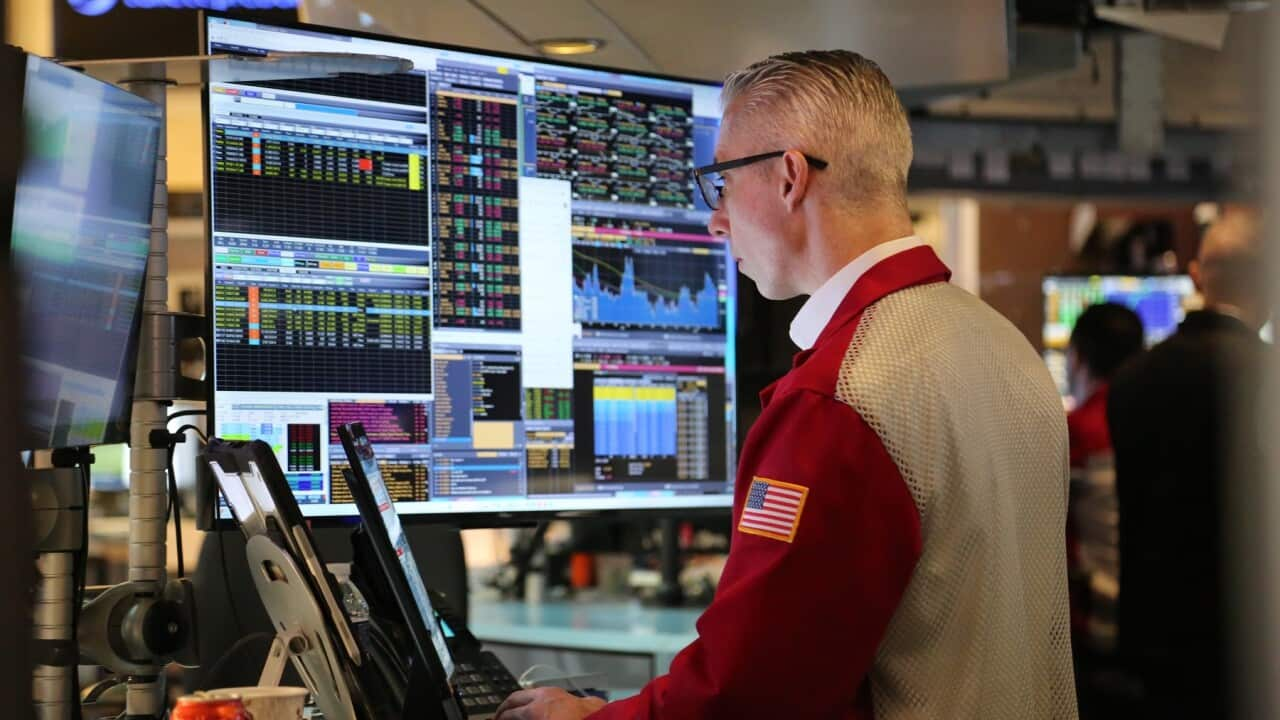Produced in collaboration with SBS Dutch
TRANSCRIPT
Philippe Smets loves fine chocolate.
“I make chocolates. I buy beans from around the world. I roast them, grind them, and create chocolate from scratch.”
So, it’s no surprise the migrant from Belgium is part of a select group producing premium products.
“There's been a movement, called bean to bar, which is buying premium beans from lesser regions around the world, creating honest chocolate without additives.”
From a small workshop at his inner Sydney home, this business Chocolat Philippe turns out 300 bars each week. Some are sold locally, and Philippe says around one third are ordered online.
“The big difference with mass market chocolate is that my chocolate is very pure and the first reaction of people tasting my chocolate is like ‘oh, this is the best chocolate I've ever had in my life’.”
However, global prices for cacao beans – the raw material of chocolate - skyrocketed in recent months, and small businesses like Philippe’s are feeling the crunch!
“The cacao price has also gone up by about 25 per cent per kilo I buy. And the result is that the chocolate I make, the price has to go up because 70 per cent of my chocolate bar is cacao.”
And it’s not just small businesses ... bearing the cost burden. Mondelez International, which bought Cadbury in 2010 and is a key player in the chocolate industry, is among larger producers impacted by 'unprecedented' cacao costs. Rabobank (RAH-BOH) analyst Pia Piggott explains:
“Global prices are very high. In early February, they are over $17,000 Australian dollars per ton. The record we saw was in December when prices hit just close to $20,000 Australian dollars a ton. And that was off the back of three consecutive deficits in supply. So particularly from West Africa, we saw that diseases such as black pod disease and cocoa swollen shoot virus were killing the trees over the few years as well as significantly decreasing yields.”
In West Africa where half of all cacao beans are grown, human rights groups say farming and harvesting can involve modern slavery. The US government estimates that 1.5 million children are engaged in child labour on cocoa farms in Ghana and the Ivory coast. For this reason, many small producers like Philippe try to source their beans ethically.
“I don't buy directly from most of the farmers. I go through two wholesalers. One is based in Melbourne, the other one is based in Belgium. And I know that they visit personally every farm they buy beans from and they ensure that all those regulations regarding child labour or sustainability are respected.”
In recent years, Philippe has also started traveling overseas to see cacao farms for himself.
“I visited a farmer in Thailand in the southeast of Thailand. It was very interesting because I helped them over several days through the whole process of harvesting the beans, fermenting the beans, and then drying the beans in the sun. And I'm going to visit them again soon.”
Philippe may now be living his dream, but this new career began during a battle with a life-threatening illness. The 51-year-old vividly recalls getting a shock diagnosis, while working as a management consultant in Belgium.
“When I was 39, I had a fever. And after three days of tests, doctors came back with a diagnosis that had a non-Hodgkin lymphoma. By the time I was diagnosed it was stage four, meaning that it was spread in several organs and also in my lymph nodes. And so a very serious course of chemotherapy was needed.”
During treatment, Philippe made a discovery that would change the course of his life.
“When I was in hospital and under chemo, people brought me the best chocolate you can find in Belgium and that's where I really discovered the very good taste of handcrafted premium chocolate.”
Philippe later moved to Australia and his cancer is now in remission. But his love affair with fine chocolate has flourished.
“I was unable to go back to a crazy life working in corporate, it didn't align with my values. That had become clear. And the one thing I wanted to share with the world was that moment of relaxation and feeling good through chocolate. And that's how I decided to make the best chocolates I could make and share it with people around me. It's been very hard for the last few years building everything up, but it is worth it.”
Over the past year, Philippe’s handcrafted chocolate bars have found a loyal following at The Deli, in Erskineville as owner Nick Vanos explains.
“I feel proud to sell his products because he is a local resident and it is all hand made. Customers love quality chocolate.”
However, as Easter approaches and millions of sweet treats roll off production lines, some chocolate makers are adapting to absorb rising costs, as Rabobank’s Pia Piggott explains.
“They're shrinking the size of their products. They're adding a lot of other ingredients into their chocolate, so making them more sugary or have other ingredients that cost less than cocoa.”
Experts don’t expect cacao costs to fall far this year, but Philippe Smets says there’s nothing like the taste of premium chocolate!
“Yes, it is more expensive, but it is so good. It's like a luxury indulgence that helps you calm down, relax after hard day's work.”













